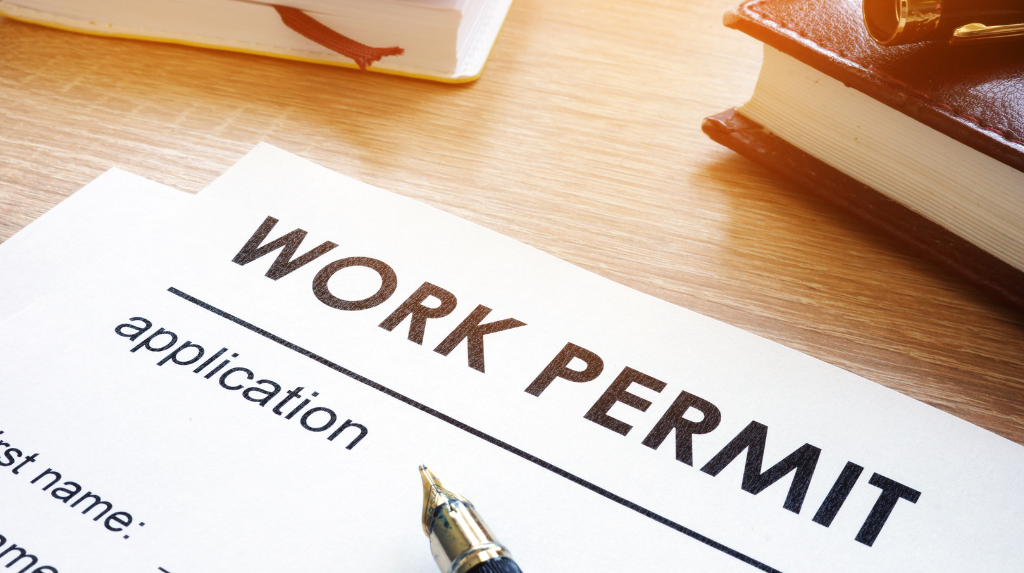Italy is a beautiful country known for its rich history, vibrant culture, and thriving economy. If you are considering working in Italy, obtaining a work visa is an essential step. This article will guide you through the process of obtaining a work visa for Italy, providing valuable information and insights to help you navigate the application process successfully.
Understanding the Work Visa for Italy
A work visa, also known as an employment visa, is an official authorization that allows foreigners to work legally in Italy. It is a crucial document that ensures compliance with Italian immigration laws and regulations. A valid work visa is required for individuals who wish to engage in employment activities in Italy, whether as an employee or a self-employed individual.
Types of Work Visas in Italy
Italy offers various types of work visas to cater to different employment situations. The most common types of work visas include:
Employment Visa: This visa is intended for individuals who have received a job offer from an Italian employer. It requires a formal employment contract and sponsorship from the employer.
Self-Employment Visa: The self-employment visa is designed for individuals who want to establish their own business or freelance in Italy. It requires proof of sufficient funds, a detailed business plan, and evidence of professional qualifications.
Seasonal Work Visa: This visa is specific to seasonal workers, such as those in the tourism or agriculture sectors, who work in Italy for a limited period.
Eligibility Criteria
To qualify for a work visa in Italy, certain eligibility criteria must be met. These criteria vary depending on the type of work visa sought. Common requirements include:
- A valid job offer from an Italian employer or proof of self-employment intentions
- Relevant qualifications and experience in the desired field
- Adequate financial resources to support oneself in Italy
- Compliance with health and security checks
- Proof of accommodation in Italy
- Sufficient knowledge of the Italian language (depending on the nature of the job)
Application Process
Applying for a work visa in Italy involves several steps. It is crucial to follow these steps carefully to ensure a smooth application process:
Research and gather information: Understand the specific requirements and procedures for the type of work visa you are applying for. Familiarise yourself with the necessary documents and deadlines.
Prepare the required documents: Collect all the required documents, including your passport, employment contract, proof of qualifications, financial statements, and other supporting documents.
Fill out the application form: Complete the work visa application form accurately, providing all the necessary information.
Schedule an appointment: Book an appointment at the Italian consulate or embassy in your home country for the submission of your visa application.
Attend the visa interview: Attend the scheduled visa interview, where you may be required to provide additional information or clarification regarding your application.
Pay the visa fee: Pay the applicable visa fee during the application submission process.
Wait for the visa decision: The processing time for work visas in Italy can vary. It is important to be patient and follow up on the status of your application if necessary.
Collect your visa: Once your work visa is approved, collect it from the Italian consulate or embassy in your home country.
Supporting Documents
When applying for a work visa in Italy, you will need to submit several supporting documents to validate your eligibility. These documents may include:
- Valid passport with at least six months of validity
- Completed visa application form
- Employment contract or evidence of self-employment intentions
- Academic certificates and professional qualifications
- Financial statements to demonstrate sufficient funds
- Health insurance coverage
- Police clearance certificate
- Proof of accommodation in Italy
Work Visa Interview
As part of the work visa application process, you may be required to attend an interview at the Italian consulate or embassy. The purpose of the interview is to assess the authenticity of your application and gather additional information. It is essential to prepare for the interview by reviewing your application, researching the company or industry you will be working in, and practising common interview questions.
Processing Time and Fees
The processing time for work visa applications in Italy can vary depending on various factors, such as the type of visa and the volume of applications. It is advisable to submit your application well in advance of your planned travel date to allow sufficient processing time.
In terms of fees, the cost of a work visa for Italy may vary depending on your nationality and the type of visa you are applying for. It is important to check the current visa fee at the Italian consulate or embassy in your home country.
Renewal and Extension
If you wish to extend your stay in Italy after your initial work visa expires, you will need to apply for a renewal or extension. The specific requirements and procedures for renewal or extension may vary, so it is essential to consult the immigration authorities or seek legal advice for detailed information.
Rights and Benefits of Work Visa Holders
People with a valid work visa in Italy have certain rights and benefits.. These may include:
Access to healthcare: Work visa holders have access to the Italian healthcare system, allowing them to receive medical treatment and services when needed.
Social security benefits: Depending on the duration and type of employment, work visa holders may be eligible for social security benefits, such as retirement benefits and unemployment benefits.
Family reunification: In some cases, work visa holders may be able to bring their immediate family members to Italy through family reunification programs.
Professional development: Working in Italy provides opportunities for professional growth and development, allowing individuals to enhance their skills and expand their professional network.
Possibility of permanent residency: A work visa can serve as a stepping stone towards permanent residency in Italy, opening up more opportunities for long-term settlement.
Challenges and Considerations
Obtaining a work visa for Italy can come with its challenges and considerations. Some important factors to keep in mind include:
Language proficiency: Depending on the nature of the job and location, Italian language proficiency may be required or highly beneficial. It is important to assess and improve language skills accordingly.
Cultural adaptation: Moving to a new country for work involves adapting to a new culture and way of life. Understanding Italian customs, traditions, and work practices can ease the transition.
Job market competition: The job market in Italy can be competitive, especially in certain industries and regions. It is advisable to research the job market and explore opportunities before applying for a work visa.
Validity period: Work visas in Italy have specific validity periods. It is crucial to comply with visa regulations and ensure timely renewal or extension if necessary.
Immigration policies: Immigration policies and requirements can change over time. Staying updated with the latest regulations and consulting with immigration experts can help navigate any changes effectively.
In conclusion, obtaining a work visa for Italy is a significant step towards pursuing employment opportunities in this beautiful country. By understanding the requirements, following the proper procedures, and preparing well, you can increase your chances of a successful work visa application. Remember to stay informed, be proactive, and seek professional guidance when needed to ensure a smooth transition and a fulfilling work experience in Italy.
FAQs (Frequently Asked Questions)
Can I apply for an Italian work visa without a job offer?
While some work visas require a job offer, others, such as the self-employment visa, allow individuals to establish their own business or work as freelancers in Italy without a job offer.
How long does it take to process a work visa application for Italy?
The processing time for work visa applications in Italy can vary. It is advisable to submit your application well in advance to allow sufficient processing time, which can range from several weeks to a few months.
Can I change jobs after obtaining a work visa in Italy?
In most cases, work visas in Italy are tied to a specific job or employer. Changing jobs may require a new work visa application or a modification of the existing visa. It is important to consult the immigration authorities for guidance in such situations.
Is it possible to bring my family with me on a work visa to Italy?
Family reunification programs are available for work visa holders in Italy. Eligibility criteria and specific requirements apply, and it is advisable to consult the immigration authorities for detailed information.
Can a work visa lead to permanent residency in Italy?
Holding a work visa in Italy can be a pathway towards permanent residency. Depending on the type of visa, duration of stay, and compliance with immigration regulations, work visa holders may be eligible to apply for permanent residency in Italy in the future.
Do you need a work Visa to Italy?
Contact our team of skilled immigration lawyers to discuss your visa and immigration needs.
Call us on +234 812 5505 986 or WhatsApp us at +234 818 1547 085 for immediate assistance with your situation. We are available to assist you in person, over the phone, or online.





